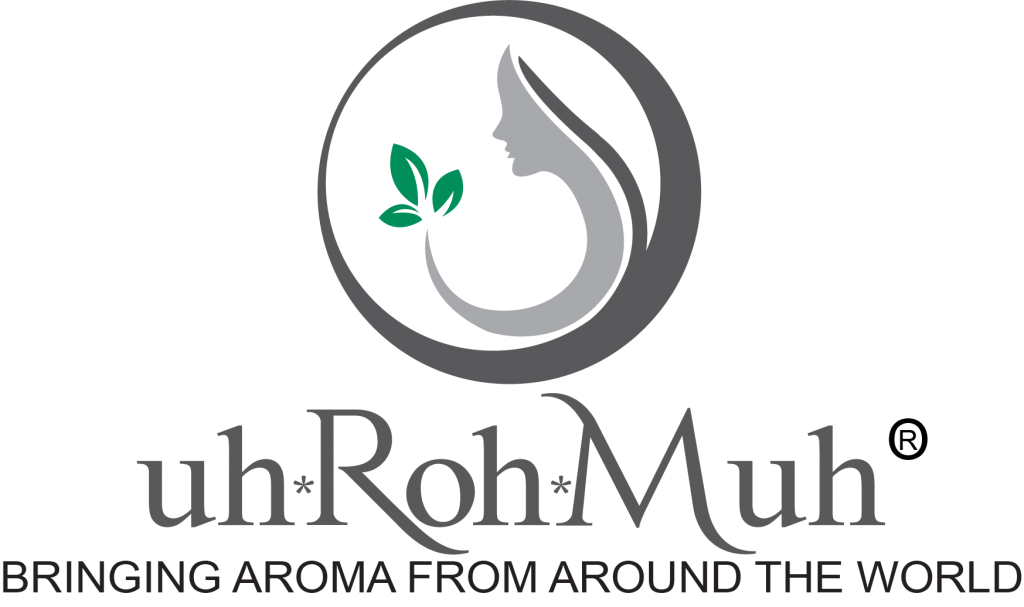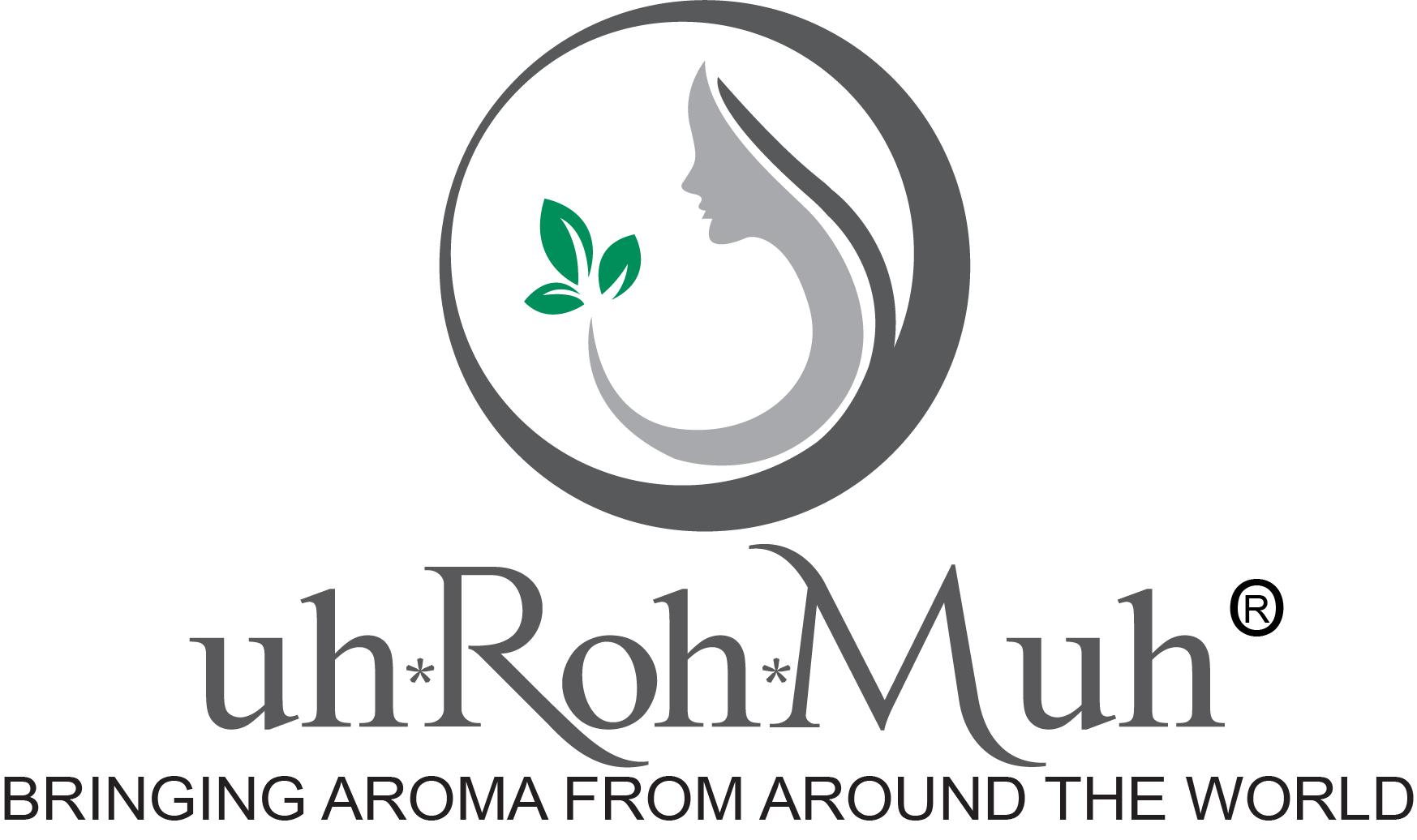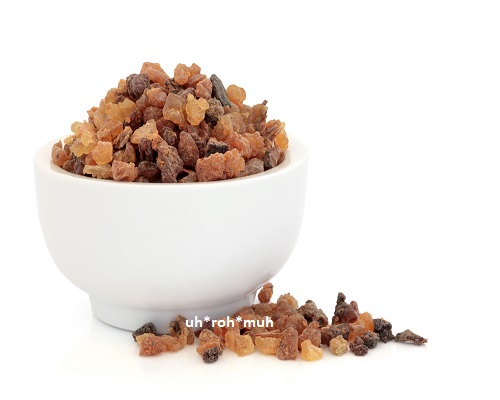Myrrh Essential Oil
Myrrh essential oil is derived from the resin of a tree called commiphora myrrha, a distinctively knotty tree native to the middle east, and is found primarily in Yemen, Arabia, and Somalia. Along with frankincense, it is one of the most widely used essential oils in the world, and its slightly smoky, dry, creamy, sweet, camphorous, and balsamic scent is often a component of incense and other exotic perfumes. The oil itself is a viscous liquid with a yellow-orange hue; it is steam distilled from the resin gum (sap) of the tree, and has a strong base fragrance note. Myrrh is often used as a fixative in perfumery. Its chemical constituents include a-pinene, eugenol, limonene, cadinene, m-cresol, cuminaldehyde, heerabolene, formic acid and various other acids.
Myrrh essential oil in history
Most of us likely know of myrrh as one of the gifts the wise men brought to the baby Jesus in the famous bible story. Mentioned in the bible a total of 156 times, it has a range of uses, which include culinary spice, natural medicine, and for embalming or anointing the dead before burial. The ancient Egyptians used it in their mummification process, and it is used in religious rituals throughout the world. It has been an important part of both Chinese and Ayurvedic medicine for centuries, and continues to be an integral aspect of aromatherapy in modern times. In ancient Greece, soldiers always had a vial of myrrh on hand to heal wounds and stop bleeding. It was considered a luxury item along the lines of gold and other valuable commodities, and was often given as gifts for and by the wealthy or those of noble birth. Its use is recorded in one of the oldest known Egyptian texts: the Ebers Papyrus dates back to about 1550 BC, and outlines hundreds of natural remedies and medical uses for various plants and plant extracts. Sometimes called punt, or phun in these ancient texts, it was made into a perfume which was prescribed to relieve hay fever symptoms. The Hebrews were known to mix myrrh into their wine in order to raise their state of consciousness prior to a religious ritual. This same recipe was offered to those condemned to death: given to them a few hours prior to their execution, it was meant to ease their mental anguish. The name myrrh is derived from Arabic, and means bitter in that language. There are numerous references to it in both the old and new testaments of the bible, as well as in Greek and Roman texts, and also the Koran.
Myrrh oil uses
Mucous solvent: breaks up congestion in the lungs and sinuses due to colds, flu or seasonal/environmental allergies.
Oral health: its astringent qualities help to stimulate and tone the gums and the inside of the mouth.
Heals wounds: helps to heal wounds faster, and also aids in the blood clotting process.
Anti-fungal: effective in treating fungal diseases of the skin, including athlete’s foot and ringworm.
Stimulates blood circulation: promotes better blood circulation, which in turn helps the body to rid itself of toxins. Promotes a healthy metabolism, as blood flow is increased to all extremities, encouraging better oxygen absorption and more efficient immune response.
Anti-inflammatory: calms inflammatory response in soft tissue as well as in the digestive tract.
Women’s reproductive health: eases menstrual/PMS discomfort, regulate the cycle, hasten labor and facilitate birth.
Skin care: astringent in nature, it can help to control oily skin, and acne, as well as tighten pores and promote a healthy glow.
Mood lifter: chases away depression, and promotes self-confidence, as well as positive, organized thinking.
Whole body tonic: reduces inflammation, and tones every organ in the body, giving your system a boost to its overall health while protecting from infection and premature aging.
Stress reliever: helps to focus and calm the mind, which may help to relieve stress and tension.
Meditative: used in spiritual practice to aid in focusing the mind for meditation.
Increases perspiration: stimulating perspiration will help rid your body of toxins and environmental impurities.
Stomach and digestive: helps to rid the body of excess gas and combat flatulence, and also helps to ease stomach cramps.
Immune booster: strengthens and stimulates healthy immune response, which can help protect you from infections and contagious viruses.
Anti-bacterial/anti-fungal: myrrh does not allow bacteria to take hold in your system, preventing viral disease and infection from a range of sources including mumps, chicken pox, colds, and infections due to wounds.
Contraindications
Though generally regarded as a safe and non-irritating oil, use caution if you are pregnant as it could cause contractions. Keep out of reach of children and avoid contact with your eyes or mucous membranes. If used in excess, myrrh can be toxic to the system. If you are pregnant, nursing, or have a complex medical condition, consult with a health practitioner prior to beginning a course of aromatherapy treatment with myrrh.
Disclaimer
These statements have not been evaluated by the Food and Drug Administration. This product is not intended to diagnose, treat, cure or prevent any disease. If you are pregnant, nursing, taking medication, or have a medical condition, consult your physician before using this product.




You must be logged in to post a comment.